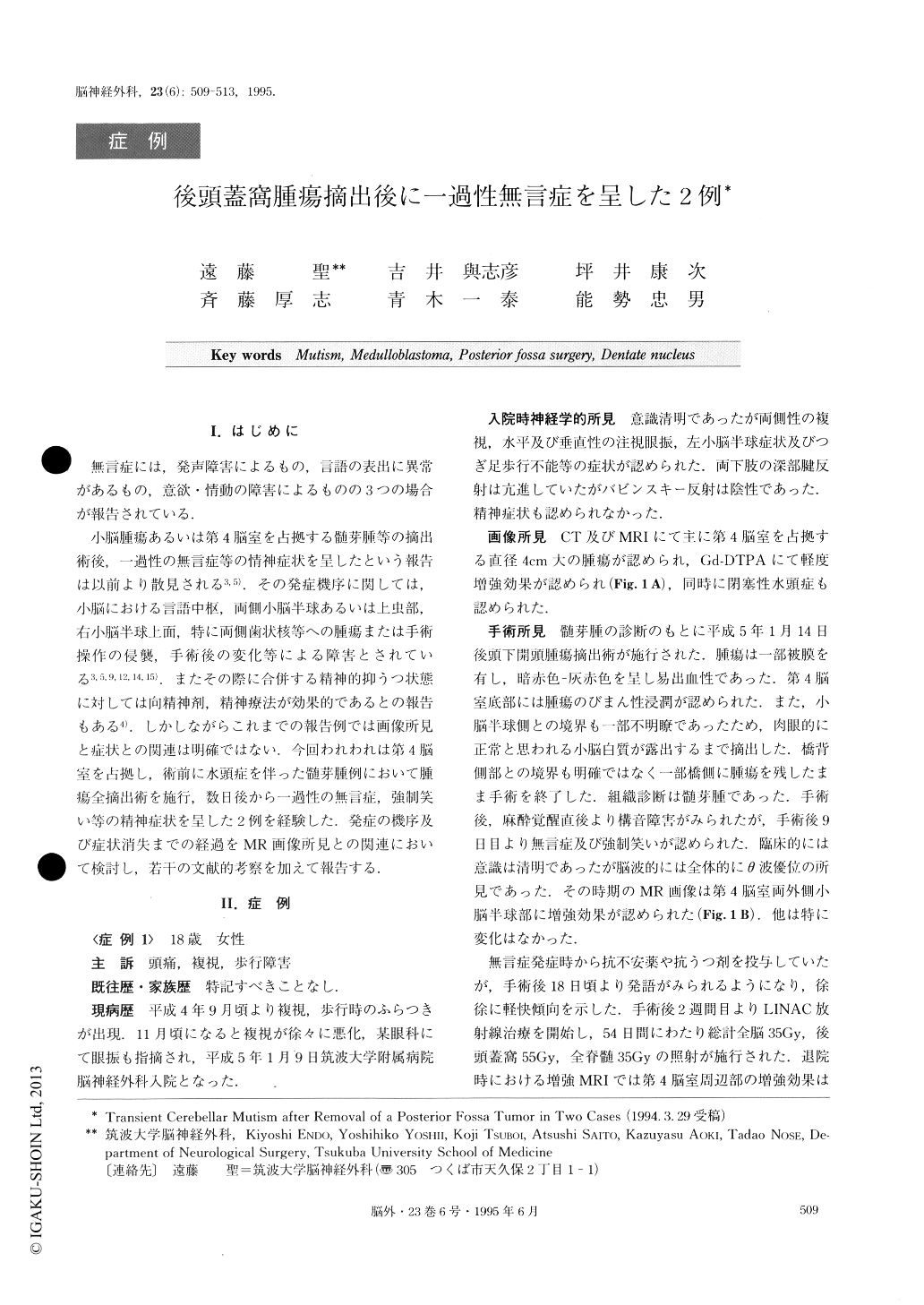Japanese
English
- 有料閲覧
- Abstract 文献概要
- 1ページ目 Look Inside
I.はじめに
無言症には,発声障害によるもの,言語の表出に異常があるもの,意欲・情動の障害によるものの3つの場合が報告されている.
小脳腫瘍あるいは第4脳室を占拠する髄芽腫等の摘出術後,一過性の無言症等の情神症状を呈したという報告は以前より散見される3,5).その発症機序に関しては,小脳における言語中枢,両側小脳半球あるいは上虫部,右小脳半球上面,特に両側歯状核等への腫瘍または手術操作の侵襲,手術後の変化等による障害とされている3,5,9,12,14,15).またその際に合併する精神的抑うつ状態に対しては向精神剤,精神療法が効果的であるとの報告もある4).しかしながらこれまでの報告例では画像所見と症状との関連は明確ではない.今回われわれは第4脳室を占拠し,術前に水頭症を伴った髄芽腫例において腫瘍全摘出術を施行,数日後から一過性の無言症,強制笑い等の精神症状を呈した2例を経験した.発症の機序及び症状消失までの経過をMR画像所見との関連において検討し,若干の文献的考察を加えて報告する.
We have reported the cases of two young patients who presented transient mutism in the course of recov-ery from removal of a cerebellar medulloblastoma. Although cerebellar symptoms were observed im-mediately after surgery, neither consciousness disturb-ance nor sensory aphasia was observed when the pa-tients were mutic.
From the analysis of serial magnetic resonance imag-ing (MRI). Gd-enhanced regions were noticed in the dentate nucleus and the cerebellar peduncle when mut-ism appeared, and they disappeared when mutism was gone.
Although the mechanism of this interesting symptom is not clear, these MRI findings may indicate that focal ischemia or edema associated with surgical procedure may play a role in the appearance of this symptom.

Copyright © 1995, Igaku-Shoin Ltd. All rights reserved.


